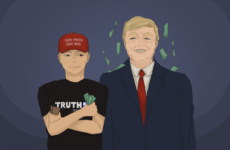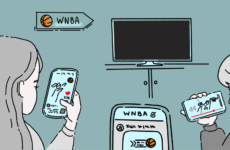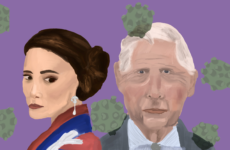While the recent American election cycle has been filled with surprising comments from candidates of both parties, the rhetoric has paled in comparison to outrageous statements and policies of Filipino President Rodrigo Duterte since he won the election in June 2016. Not only has the president insulted leaders from around the world, but he has also advocated for killings of those involved in drug-related crimes. His complete disregard for the law has led to human rights violations across the country that cannot continue to go unpunished — it is necessary that negotiations with his government begin in the hopes of changing the style of his regime.
In his short time in office so far, Duterte has already managed to damage Filipino relations with many nations around the world. Recently, President Barack Obama cancelled a meeting with the Filipino leader after Duterte called Obama a derogatory term. He has called the U.N. “stupid” and declared that the U.N. Secretary General is a “devil.” Despite the Philippines being a predominantly Catholic nation, he even referred to the Pope in a disparaging manner because of an increase in traffic during the Pope’s visit.
Although his remarks may seem outlandish, just a few months ago, President Duterte harbored high approval ratings of over 90%. This may have been the result of a citizenry tired of the corruption and lack of change in a failing political system. Many major leaders of the nation in the past have been surrounded by controversy. Some examples of the Philippines being plagued by a past of corrupt politicians include former Presidents Arroyo, Marcos, and Estrada who were accused of corruption and embezzlement of funds; however, they were later pardoned. Another former leader representing the disrepair of the system is former Congressman Romeo Jalosjos, who was given two life sentences for raping an 11 year old child, yet still got re-elected from behind bars and was pardoned less than 15 years into his sentence. Duterte’s idea of change may have resonated with many Filipinos and this may explain how such an extreme, unpredictable candidate would be able to become president.
However, some of the ideas that Duterte has stood behind represent complete breaches of law and crimes against his people that are considered inhumane to many human rights organizations; these values that Duterte represents cannot be tolerated. Duterte has completely disregarded any rule of law that the country may have had by offering to pardon members of the police and military for killing those that he deemed drug criminals. His literal war on drugs has led to 3,400 killings and over 18,000 arrests already, only months into his term. He threatened to shut down legislative branches that may get in the way of his goals, and has warned the media against disrespecting his regime. He even called for the civilian-led execution of criminals and drug dealers throughout the Philippines. Duterte has wielded his power to create a position above the law, and international action should be taken in the form of advanced negotiations or even the threat of sanctions if he continues to behave in this manner with no respect for the voices or rights of his citizens.
Human rights violations have also appeared in his suppression of critics. Senator Leila de Lima — who was the head of the Senate Justice and Human Rights Committee — was removed from office because of her criticism and the risk that she might expose his regime on a larger scale. She has even stated that she fears for her life as a critic of Duterte’s government. Duterte should not be able to avoid punishment for the crimes he has committed or incited through his hateful and violent rhetoric. No head of state should be able to act in such a destructive, criminal, and harmful way.
Duterte’s unpredictability makes him a dangerous bet to continue to lead a country as large as the Philippines for the next six years. His violation of basic human rights, such as free speech and the right to live freely without fear of extrajudicial behavior, are starting to have major negative impacts on the Philippines and foreigners there. For the sake of protecting citizens at risk, the U.N. or another multi-national force should lead negotiations with President Duterte in the hopes of changing the ideals represented and perpetuated by his harmful regime.




